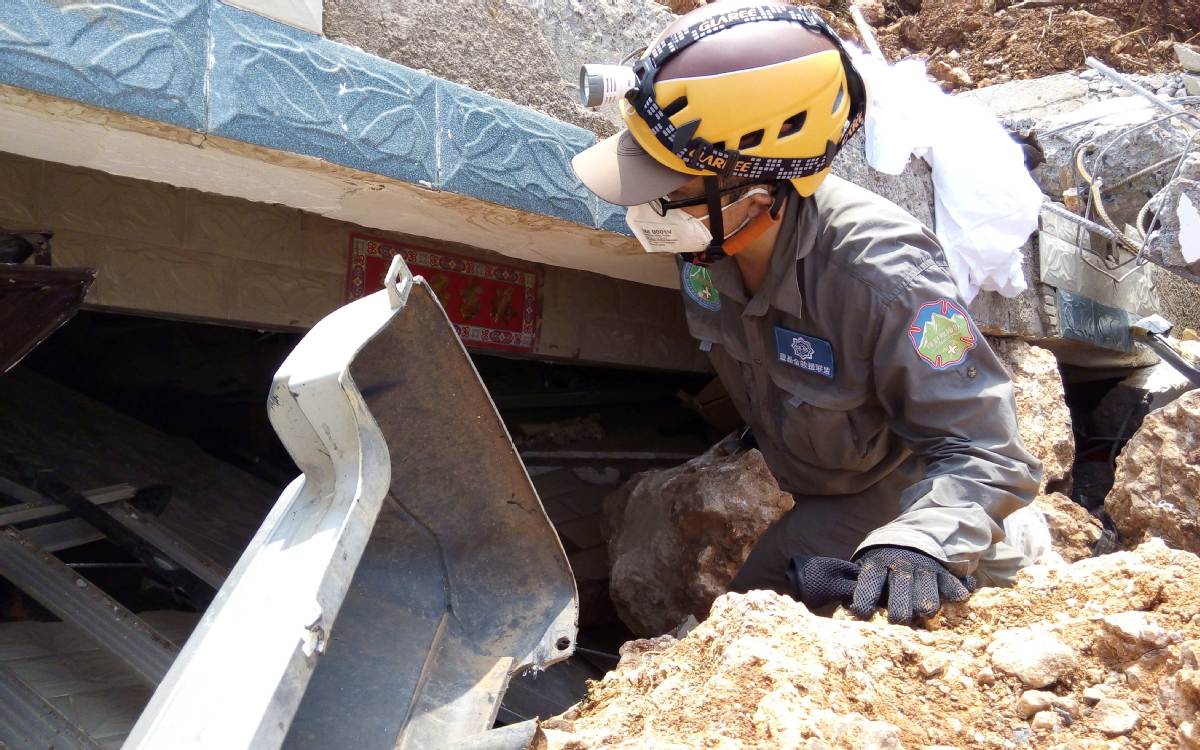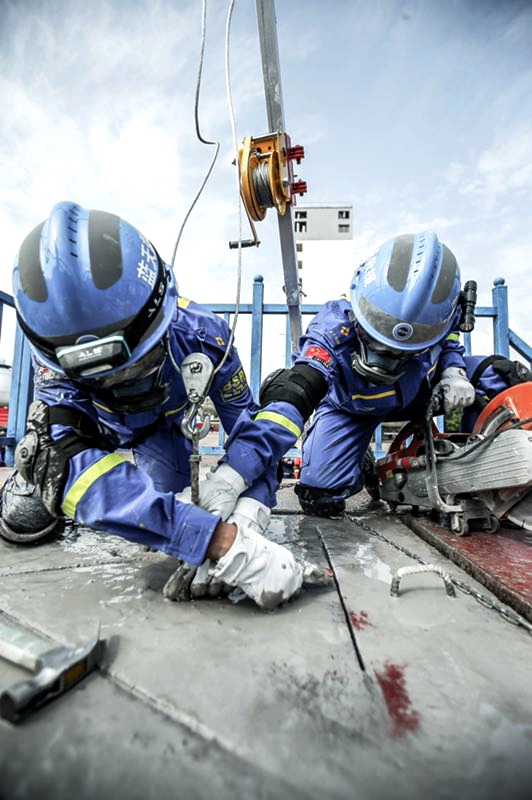Rescue teams rise to the challenge


Bitter and sweet
"All our operations are voluntary without pay, and the members sometimes need to find the money for transportation or accommodations. They also have to pay for their own equipment," Zhang said.
It is quite common for a member to spend thousands of yuan for a single rescue, he added. "If it's an overseas operation, the cost may reach tens of thousands of yuan."
China does not have a special budget for civilian rescue teams, and expenses incurred during such work are not reimbursed. Most organizations have to do fundraising or find sponsors themselves.
"Our funding mainly comes from social donations. Team members will sometimes donate if they cannot reach a rescue site," Zhang said.
Wang Ke, founder of the nongovernmental rescue organization the Peaceland Foundation, said his team also turns to online donations.
"For a certain rescue operation, we will apply for a targeted donation on online fundraising platforms such as Shuidichou and Tencent Foundation," he said. "The donations we receive will only be used for a particular operation."
The Peaceland Foundation has received a total of 2 million yuan ($291,000) in donations for the rescue operation in Changning and for local residents.

Some local governments, such as Beijing and Shenzhen, Guangdong province, have realized the importance of these civilian groups, and have included the teams in their local emergency rescue systems. They provide financial support for the purchase of expensive equipment, or air tickets.
Insurance is another challenge for the civilian groups. Most commercial insurance companies cannot provide services for the volunteers, as rescue work involves "proactively taking risks that exceed insurance coverage", according to Zhang and Peng.
They said they hoped that in the near future insurance companies could introduce products designed for them and that the government could also lend a hand.
The volunteers also have to face complaints and fears voiced by their families and friends.
"Our key members always give up time with their families and save their annual leave for when their services are required for dangerous rescue operations," Peng said.
But the recognition and respect they receive after every rescue operation makes them feel the work is well worthwhile.
In 2014, a magnitude 6.5 earthquake hit Ludian county, Yunnan province. After Peng and his teammates completed their rescue work and returned to Kunming, the provincial capital, their driver, who helped them to get to the scene, took them home for a hot meal.
"It was already midnight when we got back. His whole family had prepared a sumptuous dinner and waited for us that night," Peng said. "They said they wanted to thank us for helping them. We never expected that."


















